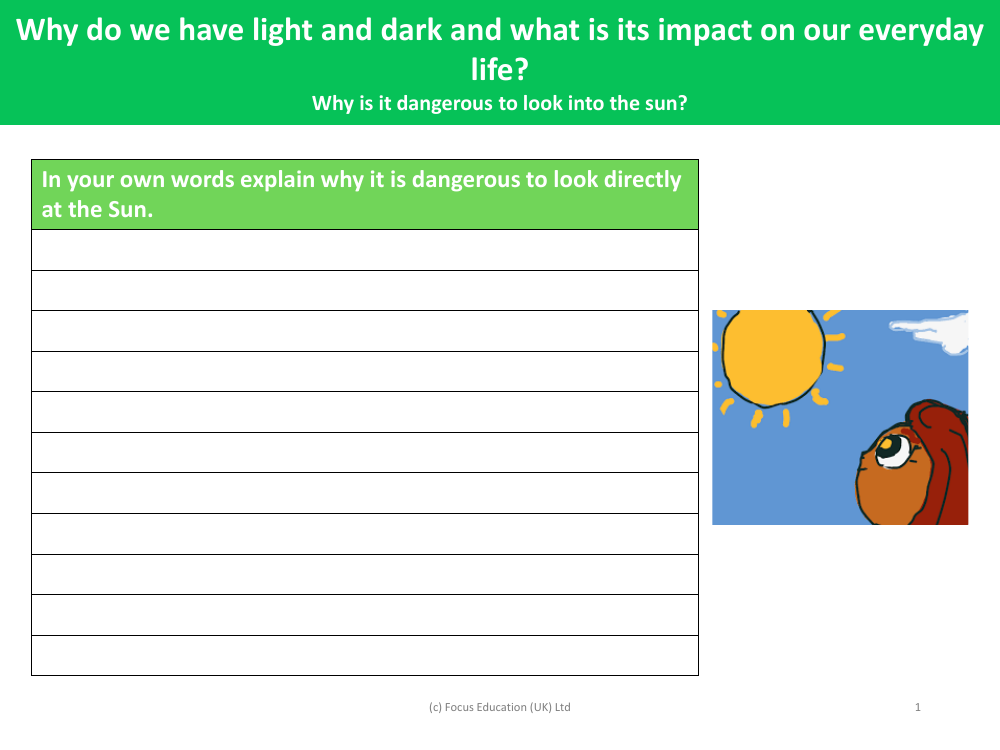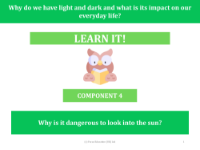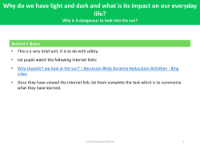Why is it dangerous to look into the sun? - Writing activity

Science Resource Description
Looking directly at the Sun is extremely dangerous and can result in serious harm to your eyes. The Sun emits intense amounts of light, including ultraviolet (UV) radiation, which is powerful enough to cause permanent damage to the retina, the part of the eye responsible for detecting light. When you stare at the Sun, the lens of your eye focuses the sunlight onto the retina, much like a magnifying glass can focus light to burn a piece of paper. This concentration of solar radiation can burn the retinal tissue, leading to a condition called solar retinopathy. The damage can be temporary or permanent, potentially leading to vision loss or blindness. Therefore, it is critical to never look directly at the Sun, especially during a solar eclipse, without proper eye protection designed specifically for this purpose.
Light and dark play a fundamental role in our everyday lives, influencing a wide range of daily activities and biological processes. The presence of light signals to our bodies that it's time to be awake and active, while darkness triggers the release of melatonin, a hormone that prepares us for sleep. This natural cycle of light and dark, known as the circadian rhythm, is crucial for maintaining our overall health and well-being. Light allows us to see and perform tasks, while darkness provides us with the opportunity to rest and recover. Moreover, the alternation of light and dark helps to regulate ecosystems, affecting the behavior of plants and animals. In human society, light and dark also determine work schedules, leisure time, and the functioning of various industries.



